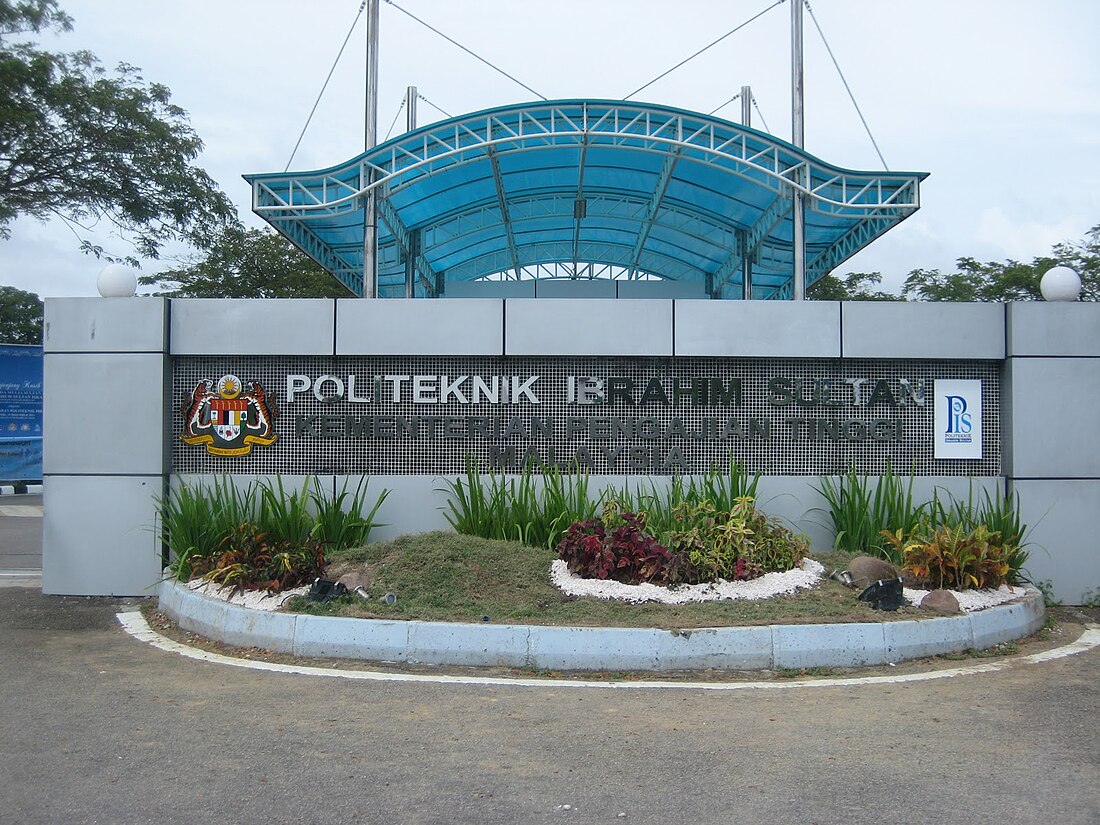Top Qs
Timeline
Chat
Perspective
Ibrahim Sultan Polytechnic
Technical school in Pasir Gudang, Malaysia From Wikipedia, the free encyclopedia
Remove ads
Ibrahim Sultan Polytechnic (PIS; Malay: Politeknik Ibrahim Sultan) is a polytechnic in Pasir Gudang, Johor, Malaysia.[5]

The polytechnic specialises in engineering, communication design and hospitality,[6] and offers 2-year skills certificate, 2-year diploma and 3-year degree programmes. PIS is organised into six departments: Mechanical Engineering, Electrical Engineering, Visual Design & Communication, Tourism & Hospitality, Science & Computer Science, and General Studies.
Remove ads
History
PIS started as the Johor Bahru Polytechnic in February 1998 at the site of the former Johor Bahru Technical Secondary School. Planning for the polytechnic began during the 7th Malaysian Plan, in collaboration with the World Bank.[7]
In July 1998, PIS moved into its current 100 acres campus in Plentong, Johor Bahru, which was completed at a cost of RM155.52 million.[7]
In December 2011, Johor Bahru Polytechnic was renamed Ibrahim Sultan Polytechnic, in honour of the Sultan of Johor.[8]
Between 2010 and 2015, PIS was upgraded twice by the Ministry of Higher Education, first into a Premier Polytechnic in 2010 and then a Premier Polytechnic (University Status) in 2015. As a Premier Polytechnic with University Status, PIS has greater autonomy than conventional polytechnics to determine its pedagogy and syllabus.
Remove ads
Academic
This section needs additional citations for verification. (June 2021) |
Politeknik Ibrahim Sultan (PIS) has developed plantation chilli fertigation with its own brand of Poly Agro in Kulai.[9]
Ratings
MQA PolyRate 2013
Politeknik Ibrahim Sultan was evaluated and given a rating in PolyRate 2013 and classified as Tier 6 which is Outstanding polytechnics in Malaysia.[10]
This makes Politeknik Ibrahim Sultan as one of the best three of the 32 polytechnics in Malaysia until now.[citation needed]
Achievement
Social responsibility
Politeknik Ibrahim Sultan social obligation to offer courses to people with disabilities (or in Malaysia formerly known as Orang Kelainan Upaya and OKU in acronym) to give them the opportunity to receive training appropriate to their ability.[11]
References
External links
Wikiwand - on
Seamless Wikipedia browsing. On steroids.
Remove ads


